Indonesia, the world's largest Muslim-majority country, is known for its diversity and relative religious tolerance. However, the northern province of Aceh stands apart as the most conservative region—where strict Islamic Sharia law is officially enforced. Unique to Aceh is the presence of the Wilayatul Hisbah, or morality police, a special force that includes female officers tasked with upholding public morality.
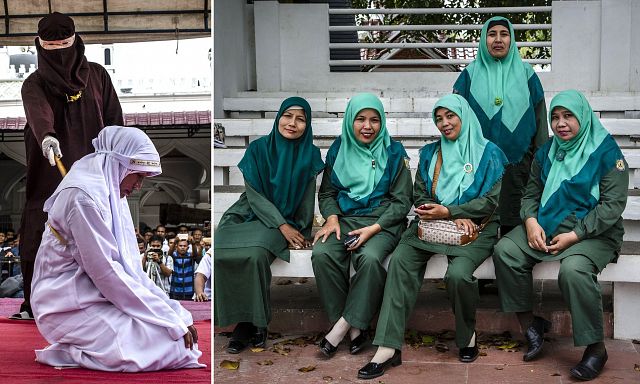
How Sharia Law Took Root in Aceh
In 2001, in an effort to ease long-standing separatist tensions, the central government in Jakarta granted Aceh special autonomy. This autonomy allowed the provincial government to implement Sharia law, which applies exclusively to Muslims in the region. Since then, a series of Islamic by-laws have been enacted, regulating behavior ranging from dress codes to personal relationships.
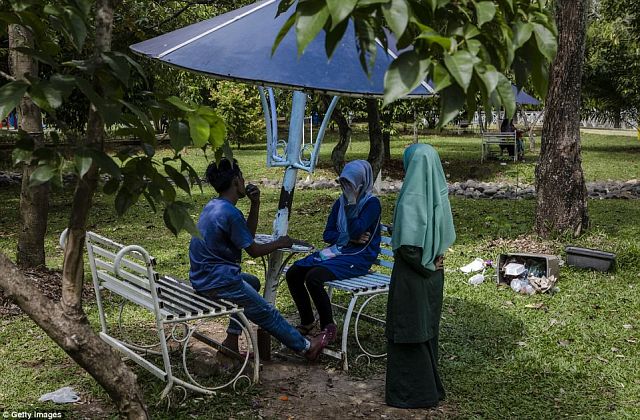
Everyday Enforcement: Policing Morality
The morality police patrol parks, streets, and public venues daily. Female officers—often smiling and courteous in demeanor—play a central role in monitoring and advising women on appropriate behavior. But their friendly appearance belies the harsh consequences that can follow a perceived moral violation.
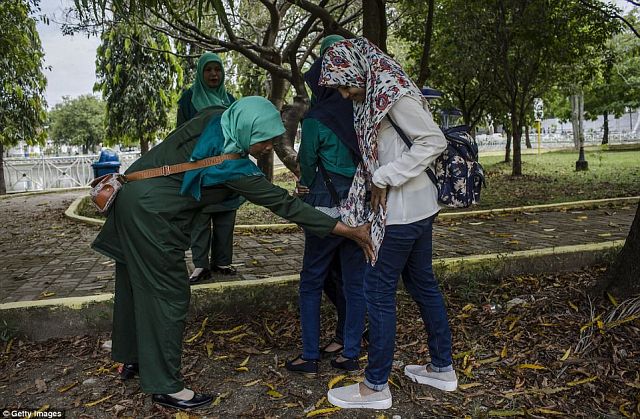
For example, if a woman is seen talking to a man who is not her husband or a relative, both could be charged with khalwat (illicit seclusion). Punishments range from public caning to fines or brief imprisonment.
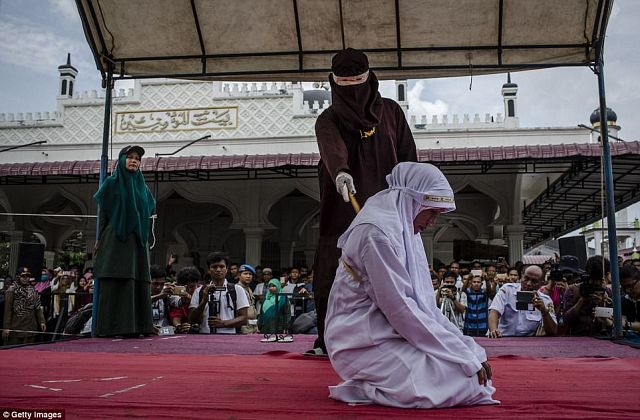
Caning is also used as a penalty for offenses such as:
- Adultery
- Alcohol consumption
- Gambling
- Riding a motorcycle with a member of the opposite sex (if not married)
- Dressing "inappropriately" (e.g., women wearing tight trousers)
- Being out in public after 11:00 p.m. without a male relative
- Violating Ramadan restrictions (e.g., eating, drinking, or selling food during daylight hours)
Public Canings: A Spectacle of Shame
Punishments in Aceh are typically carried out in public, drawing large crowds.
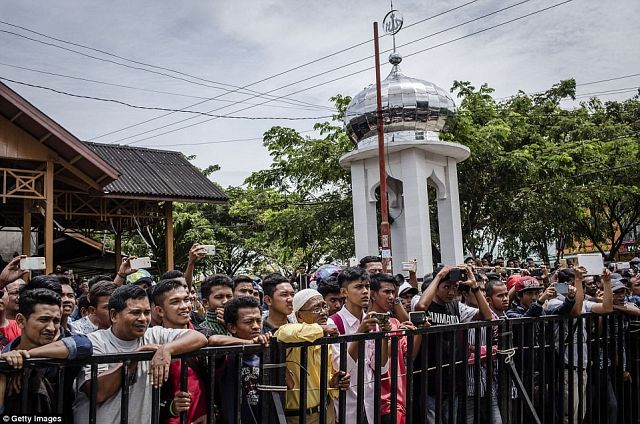
The executioner, known as the algojo, wears a dark robe and keeps their face hidden except for a narrow slit at the eyes. Despite being a familiar figure in the community, their concealed identity adds an air of fear and spectacle to the proceedings.
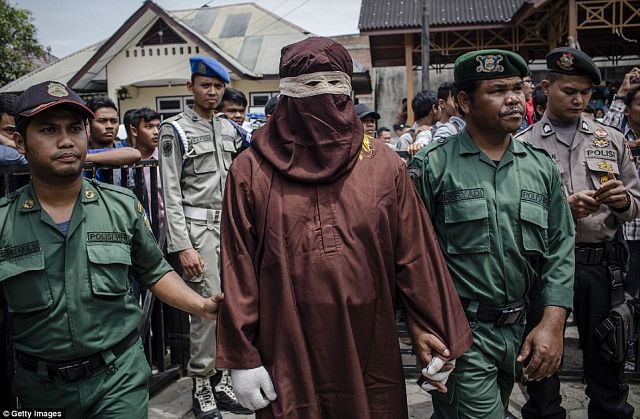
For sexual relations outside of marriage, individuals may receive between 25 and 100 lashes. After the caning, police officers escort the punished individual away, and a doctor conducts a post-punishment health check.
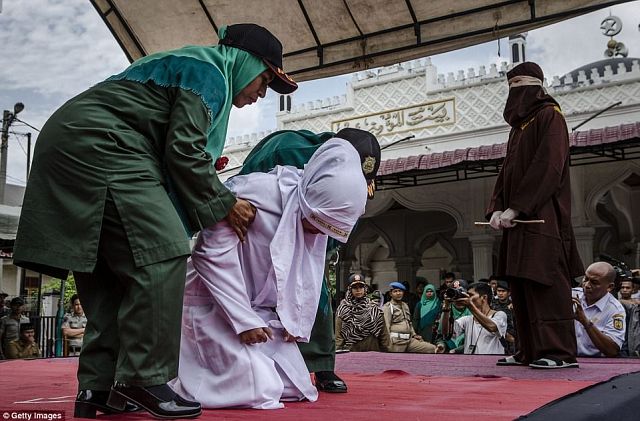
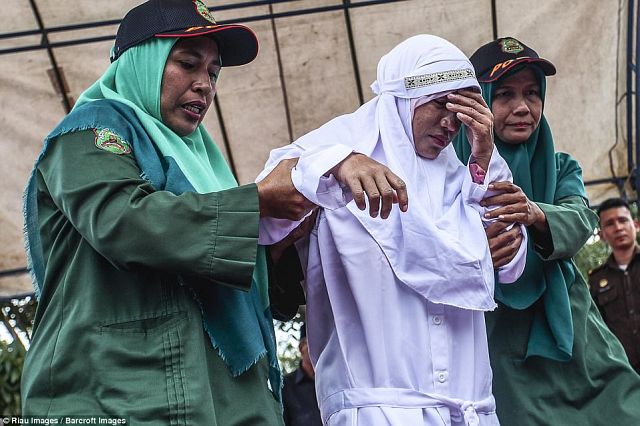

A Broader Context: Caning Beyond Aceh
Aceh is the only province in Indonesia where Sharia law is officially enforced, but corporal punishment through caning is not unique to this region. Neighboring countries like Malaysia and Singapore—both secular states—also practice caning, a legacy of British colonial rule.
In Singapore, more than 30 offenses are punishable by caning, including relatively minor violations by international standards. In 2012, Singaporean courts sentenced individuals to caning 2,203 times—1,070 of them were foreign nationals. Similarly, Malaysia continues to implement corporal punishment for a range of offenses, often in public settings.
Final Thoughts
While Aceh’s morality police are often portrayed as polite and composed, their work involves enforcing a strict interpretation of Islamic law through physical punishment. These practices remain highly controversial and are the subject of ongoing human rights debates, both within Indonesia and internationally.
You can add one right now!